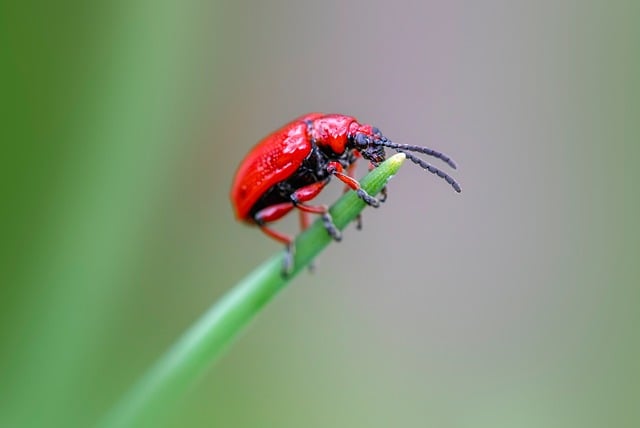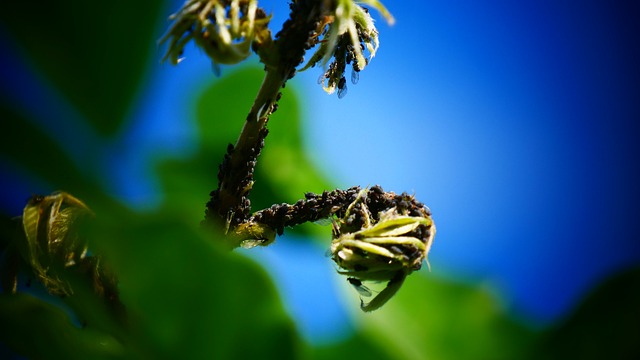In Wheat Ridge basements, a musty odour caused by spiders is an early sign of infestation. Confirm through web patterns, holes, or spider sightings. Use traditional or natural pest control methods, like essential oils and boric acid, to address the issue safely and ecologically. Seal entry points, maintain cleanliness, and hire professionals for long-term prevention. Employ natural deterrents around entry points to mitigate future risks of spider infestations in your Wheat Ridge basement.
Are you tired of sharing your Wheat Ridge basement with unwanted spider guests? Identifying the source of a musty smell can be the first step towards ridding yourself of these eight-legged intruders. This article explores effective pest control methods for spiders, from traditional to natural solutions. We’ll also provide valuable tips to prevent future infestations and keep your Wheat Ridge basement free from these creepy crawlers using eco-friendly practices. Discover how to find and eliminate the source of that musty smell once and for all with our comprehensive guide on pest control.
- Identifying Spider Infestations and Musty Smells in Wheat Ridge Basements
- Traditional and Natural Pest Control Methods for Spiders
- Preventing Future Spider Infestations: Tips for Effective Long-Term Management
Identifying Spider Infestations and Musty Smells in Wheat Ridge Basements

In many cases, the first sign of a spider infestation in your Wheat Ridge basement is a distinct musty smell. This odour can be particularly noticeable when entering the space or after prolonged periods of time when the area is not accessed. It’s caused by the spiders themselves and their webbing, which trap moisture and create an ideal environment for their growth. If you notice this scent, it’s crucial to investigate further as early detection is key in effective pest control.
Spiders often find refuge in basements due to the cool temperatures and hidden spaces, making them well-camouflaged inhabitants of these areas. They can quickly establish webs across corners, behind appliances, or within cracks and crevices. To confirm a spider infestation, look for these telltale signs: intricate web patterns, small holes chewed into walls or floors (indicating their burrows), or even the spiders themselves, which range in size from tiny to more noticeable varieties depending on the species. Finding the source of a musty smell in your Wheat Ridge basement is the first step towards implementing appropriate pest control measures.
Traditional and Natural Pest Control Methods for Spiders

In addressing spider infestations, especially in areas like Wheat Ridge basements where a musty smell might indicate their presence, it’s crucial to explore both traditional and natural pest control methods. Traditional approaches often involve chemical pesticides designed to kill spiders on contact. These can be effective but come with potential drawbacks such as health risks for residents and environmental contamination. Additionally, spiders may develop resistance over time, rendering these chemicals less potent.
Natural pest control methods offer a safer and more eco-friendly alternative. Solutions like essential oils (e.g., peppermint, tea tree), vinegar, and boric acid can act as effective spider deterrents. Essential oils disrupt the spiders’ scent trails while vinegar disrupts their external exoskeletons. Boric acid, when used sparingly, can kill spiders by dehydrating them. These natural methods not only reduce health risks but also help preserve a healthier indoor environment, making them particularly appealing for those concerned about finding the source of a musty smell in their Wheat Ridge basement and preventing future infestations.
Preventing Future Spider Infestations: Tips for Effective Long-Term Management

After successfully treating for spiders, preventing future infestations is key to long-term management and avoiding that distinct musty smell in your Wheat Ridge basement. Start by identifying and sealing any entry points that may have allowed spiders inside in the first place. This could include small cracks or gaps around windows, doors, or utility pipes. Regularly vacuum and wipe down surfaces to remove webbing and silk threads, which can trap dust and attract spiders. Additionally, maintain a clean and clutter-free environment, as spiders are drawn to dark, secluded spaces where they can build webs.
For ongoing protection, consider implementing a regular pest control service tailored for spider prevention. Professional services can provide targeted treatments and monitor for any signs of new infestations. Using natural deterrents like citrus oils or lavender around entry points can also help keep spiders at bay. By combining these preventative measures, you’ll significantly reduce the risk of future spider invasions, ensuring a safer and more comfortable living space in your Wheat Ridge basement.
When addressing spider infestations in your Wheat Ridge basement, identifying the source is key. That distinct musty smell can be a dead giveaway. By employing effective natural or traditional pest control methods, you can eradicate spiders and prevent future invasions. Remember, long-term management involves maintaining a clean and sealed environment to deter these eight-legged intruders. With the right approach, you’ll have a spider-free haven, eliminating not just the creepy crawlies but also that unwanted musty odor.
